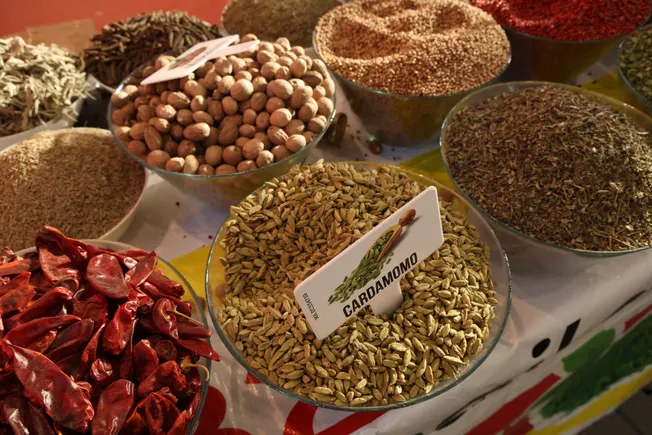The global spice market is facing challenges due to President Donald Trump’s tariff policy. With tariffs as high as 50% set to take effect on more than a dozen countries without bilateral trade agreements, the spice industry is bracing for increased costs. This comes after the United States imposed 10% base tariffs earlier this year, impacting food manufacturers and ingredients suppliers.
According to the American Spice Trade Association, the U.S. imported over $2 billion worth of spices from more than 50 countries in 2024. Many of these spices are essential flavoring ingredients used in a vast amount of food produced by American food manufacturers. The upcoming tariffs are expected to have a significant impact on the spice market.
While the focus has been on the impact of tariffs on chocolate and coffee, other spices and seasonings are also set to face higher prices. These products, such as black pepper, vanilla, and cinnamon, cannot be commercially grown in the U.S. due to specific climate and cultivation requirements. As a result, the increased import duties are likely to lead to higher costs for consumers without benefiting domestic production.
The potential price hikes come at a time when food inflation is already affecting consumer spending. Companies may be forced to turn to artificial flavoring alternatives, contradicting the push for natural ingredients in the food industry. Spice maker McCormick estimates that tariffs could cost the company up to $90 million annually, with smaller spice makers facing even greater challenges in absorbing these costs.
The Spice House, a Midwest-based company specializing in premium spices, has expressed concerns about the impact of tariffs on its business. CEO Allyson Lewis highlighted the difficulties in maintaining consistent pricing and availability due to the uncertainty created by tariffs. The company, which operates a manufacturing facility in Illinois employing over 100 people, is at risk of increased costs that it may not be able to absorb.
In response to these challenges, the American Spice Trade Association has requested tariff exemptions for spices that cannot be grown commercially in the U.S. The association has identified a priority list of more than a dozen spices, including vanilla, cinnamon, cloves, and ginger, for tariff relief. These exemptions would help mitigate the impact of tariffs on the spice industry and ensure continued access to essential ingredients for American food manufacturers.


